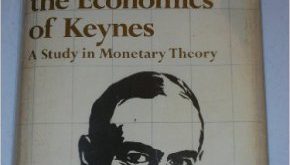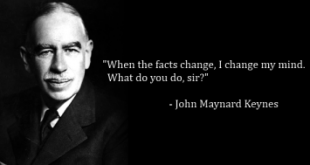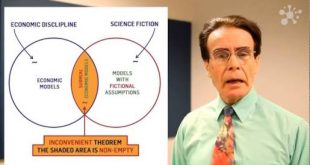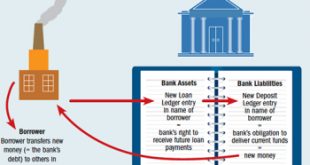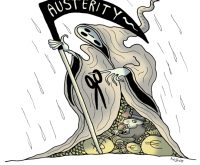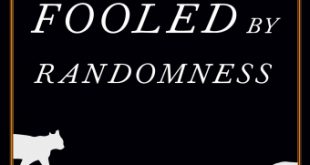Almost a century and a half after Léon Walras founded neoclassical general equilibrium theory, economists still have not been able to show that markets move economies to equilibria. What we do know is that — under very restrictive assumptions — unique Pareto-efficient equilibria do exist. But what good does that do? As long as we cannot show, except under exceedingly unrealistic assumptions, that there are convincing reasons to suppose there are forces which lead economies to...
Read More »Axel Leijonhufvud on why economics has become so boring
Axel Leijonhufvud on why economics has become so boring [embedded content]Trying to delineate the difference between ‘New Keynesianism’ and ‘Post Keynesianism’ — during an interview a couple of months ago — yours truly was confronted by the odd and confused view that Axel Leijonhufvud was a ‘New Keynesian.’ I wasn’t totally surprised — I had run into that misapprehension before — but still, it’s strange how wrong people sometimes get things. The last time...
Read More »How Richard Posner became a Keynesian
How Richard Posner became a Keynesian Until [2008], when the banking industry came crashing down and depression loomed for the first time in my lifetime, I had never thought to read The General Theory of Employment, Interest, and Money, despite my interest in economics … I had heard that it was a very difficult book and that the book had been refuted by Milton Friedman, though he admired Keynes’s earlier work on monetarism. I would not have been surprised...
Read More »Krugman’s dangerous lack of methodological reflection
Krugman’s dangerous lack of methodological reflection How do we do useful economics? This is an important question that every earnest economist ought to pose — and try to answer. Here’s one answer, from Nobel laureate Paul Krugman: In general, what we really do is combine maximization-and-equilibrium as a first cut with a variety of ad hoc modifications reflecting what seem to be empirical regularities about how both individual behavior and markets depart...
Read More »The truth about banks
The truth about banks When faced with the Great Recession in 2008, macroeconomics was initially unprepared to contribute much to the analysis of the interaction of banks with the macro economy. Today there is a sizable body of research on this topic, but the literature still has many difficulties … In modern neoclassical intermediation of loanable funds theories, banks are seen as intermediating real savings. Lending, in this narrative, starts with banks...
Read More »On the scaling property of randomness
On the scaling property of randomness I thought hard and long on how to explain with as little mathematics as possible the difference between noise and meaning, and how to show why the time scale is important in judging an historical event. The Monte Carlo simulator can provide us with such an intuition. We will start with an example borrowed from the investment world … Let us manufacture a happily retired dentist, living in a pleasant sunny town. We know a...
Read More »Did Brexit kill British austerity?
Did Brexit kill British austerity? This is the end of the disastrous experiment that was austerity, which was an ignominious failure that I opposed from the outset … It is clear that the rising number of immigrants has put pressure on public services but this was mostly because Osborne under-invested in services in order to shrink the state. They paid their taxes, but Slasher didn’t invest that money in new schools, houses and hospitals … When a negative...
Read More »‘Financial engineering’ –a costly pseudoscientific mistake
Note that the economist Robert Lucas dealt a blow to econometrics by arguing that if people were rational then their rationality would cause them to figure out predictable patterns from the past and adapt, so that past information would be completely useless for predicting the future … If rational traders detect a pattern of stocks rising on Mondays, then, immediately such a pattern becomes detectable, it would be ironed out by people buying on Friday in anticipation of such...
Read More »Mainstream economics — going for the wrong kind of certainty
Mainstream economics — going for the wrong kind of certainty In science we standardly use a logically non-valid inference — the fallacy of affirming the consequent — of the following form: (1) p => q (2) q ————- p or, in instantiated form (1) ∀x (Gx => Px) (2) Pa ———— Ga Although logically invalid, it is nonetheless a kind of inference — abduction — that may be factually strongly warranted and truth-producing. Following the general pattern ‘Evidence...
Read More »The loanable funds fallacy
The loanable funds fallacy The loanable funds theory is in many regards nothing but an approach where the ruling rate of interest in society is — pure and simple — conceived as nothing else than the price of loans or credit, determined by supply and demand — as Bertil Ohlin put it — “in the same way as the price of eggs and strawberries on a village market.” The currently dominant intermediation of loanable funds (ILF) model views banks as barter...
Read More » Heterodox
Heterodox


